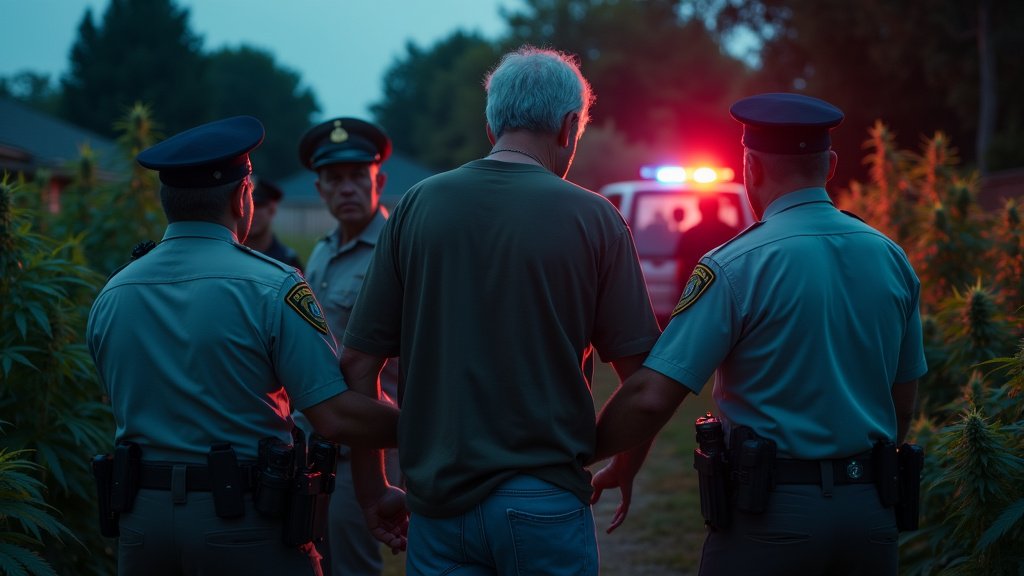Humboldt County Supervisors Expand Cannabis Grant Program to Include Licensing Fees Amidst Equity Debate
Humboldt County’s Board of Supervisors has revisited and expanded its cannabis business assistance program, Project Trellis, opting to include state licensing fees and planning department fees as eligible expenses. This move comes in response to significant feedback from the local cannabis community, which argued that the program’s previous focus solely on repaying tax debts created an inequitable system that disadvantaged compliant farmers. The decision, made at the August 26th meeting, represents a shift towards broader support for the region’s vital cannabis cultivation sector.
The Genesis of Project Trellis: Support for Impacted Communities
Launched in 2019, Project Trellis was established with the goal of supporting Humboldt County’s cannabis industry, particularly those impacted by the historical criminalization of cannabis and the protracted “war on drugs.” As a major hub within the Emerald Triangle, Humboldt’s cannabis culture is deeply intertwined with its history and economy. The program initially aimed to provide a range of assistance, including permitting, business development, infrastructure improvements, and support for those affected by past enforcement policies. This approach recognized the unique challenges faced by small growers and communities that bore the brunt of prohibition.
A Shift Towards Tax Debt Repayment and Growing Discontent
In April of the current year, the Board of Supervisors revised the program’s guidelines, narrowly focusing grant eligibility on the repayment of outstanding tax debts, specifically Measure S excise taxes and property taxes owed to the county. While this measure aimed to recoup owed funds, it inadvertently created a system where farmers who had diligently paid their taxes were excluded from receiving assistance. This decision sparked considerable criticism, with representatives from the cannabis community arguing that it contradicted the program’s foundational equity principles. Ross Gordon of the Humboldt County Growers Alliance noted that limiting funds to tax debt did not truly serve those impacted by the “war on drugs” but rather those with outstanding financial obligations to the county.
Addressing the Equity Gap: A Move Towards Broader Support
Concerns over the fairness and intent of the program were brought to the forefront at recent Board of Supervisors meetings. Farmers and industry advocates voiced their frustration, highlighting that compliant cultivators felt penalized by being excluded from aid. At the August 26th meeting, the supervisors deliberated on how to best allocate a new round of approximately $657,000 in state funding for the program. County staff cautioned that expanding the scope too broadly could increase administrative burdens and slow down fund distribution. However, Board Chair Michelle Bushnell proposed a compromise: maintaining the tax debt component while adding state licensing fees to the eligible expenses. This would provide an incentive and reward for farmers who have maintained current compliance.
The Supervisors’ Decision: A Compromise for Compliance and Support
Following discussions, the Board unanimously approved the inclusion of state licensing fees and fees from the county’s Planning Department as eligible expenses for Project Trellis grants. This decision aims to acknowledge and reward those who have met their compliance obligations, providing them with much-needed financial relief. While the immediate changes focus on these fees, the dialogue also opened the door to potentially expanding the program’s scope further in the future to cover broader business needs such as packaging or capital improvements, though administrative costs remain a consideration. This represents a significant step in providing more accessible advice and support for a wider segment of the cannabis cultivation community.
Financial Considerations and Industry Context
The Project Trellis program relies on state cannabis tax revenue, with the county providing a matching contribution. The associated administrative costs, estimated at $150,000, are a point of discussion, with potential impacts on the county’s General Fund. The cannabis industry in Humboldt County has faced immense challenges, including volatile market prices, high operational costs, and the complex regulatory landscape following legalization. Measures like the county’s cannabis excise tax (Measure S) have seen significant adjustments, including reductions and suspensions, reflecting the ongoing economic pressures on local farmers. In this context, programs like Project Trellis are crucial for the survival and sustainable growth of Humboldt’s unique cannabis cultivation heritage.






